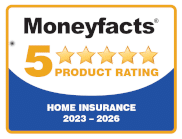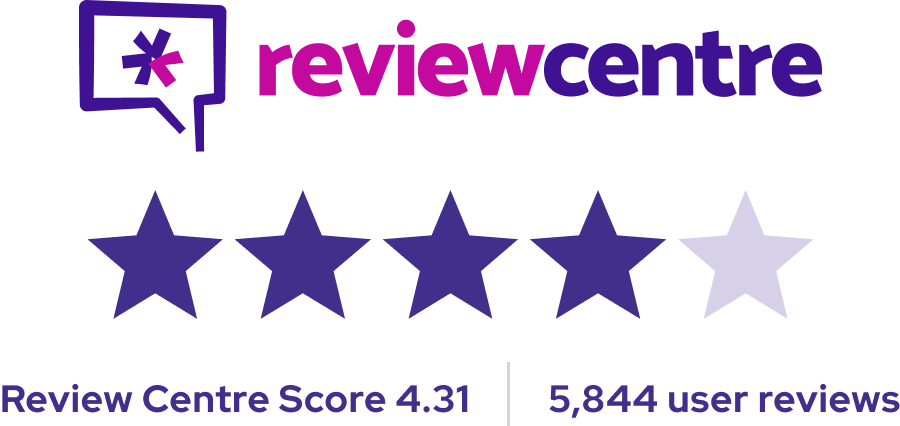B&B LEGAL REQUIREMENTS
Owning a Bed & Breakfast can be rewarding, but there’s a lot of legal implications to consider. If you’re thinking of starting your own B&B, there’s more to it than just having the right insurance. Below is a breakdown of the key things to consider if you are or plan to start running a B&B.
Permissions including planning permission
Turning your residential property into a B&B may require planning permission and/or ‘change of use‘ rom your local District or Borough Council if you are turning a residential property into a commercial property, especially if there will be significant changes made. Even if planning permission isn’t required (e.g. if your changes are non-structural only), you still may need building regulations approval. This can apply to non-structural projects such as installing an extra bathroom or adding radiators. If these works are carried out by a tradesman on the government’s Competent Persons Register, you won’t need to apply for ‘building regs’ approval yourself, though.
Before you begin, check with your local planning department (at your local District or Borough Council) whether this is needed. Small-scale B&Bs may not, but larger B&Bs with the capacity for multiple guests at a time likely will. If it is required and it goes before a planning committee, one consideration around whether or not it is approved may be if there are already a number of other B&Bs in the area.
Fire and regulations
Setting up a B&B means that your home changes from being a purely residential property to being business premises and this means you need to comply with fire safety legislation. This involves carrying out a fire risk assessment to identify whether there are any actions you need to carry out to help prevent fires and also what you need to do to keep you and your guests safe. You can either do this yourself or use a professional assessor.
As business owner, your property must meet specific fire safety requirements:
- Before you open for business, complete a fire risk assessment to identify potential hazards, and take action to reduce the risks they pose. This can be done yourself following official guidance.
- Install smoke alarms, fire extinguishers, and emergency lighting. Fire Action notices should be displayed in guest rooms, with clear Fire Exit signs throughout the property.
- You may need to fit fire doors with automatic closers in certain areas to contain potential fires and safeguard escape routes. Check with your local council for specific regulations.
- Ensure all mattresses, chairs, and sofas meet fire safety standards by checking their compliance label.
- Arrange an annual gas safety check for all gas appliances by a registered engineer.
- Stay up to date with fire regulations as they can vary based on your property size and guest capacity. These can be checked with your local fire department.
- File all paperwork correctly and securely, including any safety certificates, and keep digital copies.
Smoking regulations
In the UK, it is illegal to smoke in indoor public areas. This includes communal areas and guest bedrooms, so do not allow any staff or guests to smoke in any shared indoor part of your B&B. Whilst this legislation has been in place the UK since 2007, visitors from overseas might be unaware or visitors travelling within the UK might not realise this applies to B&Bs. You have a legal obligation to make it clear where smoking cannot take place by displaying appropriate signage.
If you choose to do so, you can allow guests to smoke in their bedrooms, or you can provide a safe outdoor smoking area, but neither of these are requirements. Display “No Smoking” signs in all communal areas, and in all bedrooms if you do not want smoking anywhere indoors.
Food hygiene regulations
If you serve breakfast or other meals to guests, your B&B counts as a food business under UK law. This means you must register with your local Environmental Health Officer who will arrange for your premises to be inspected at least 28 days before opening. This is free to do.
When starting a B&B you need to prepare for this inspection by making sure that your kitchen is suitably designed and equipped for implementing safe working practices, and ensure any staff involved in food prep have adequate training. This means following good health and hygiene practices, with a particular focus on avoiding cross contamination (i.e. keeping raw meat separated from cooked food items to prevent food poisoning). Your kitchen also needs to be structurally safe, with surfaces that are easy to keep clean. This applies to walls, floors, units and all food preparation areas which should be smooth, non-absorbent and wipe-clean. Catering kitchens must be well lit and well ventilated, with constant supplies of hot water and cold, drinkable water.
Make sure you provide suitable hand washing facilities to enable you (or your staff) to decontaminate your hands before/after handling raw meat and whenever else as required. A plentiful supply of antibacterial soap located prominently next to a hand washbasin is required. Clothing in the kitchen must be clean, and should ideally take the form of chef’s whites/blacks, and loose or long hair is best covered by caps or hairnets.
Food storage is a vital part of keeping your kitchen safe, particularly with high-risk food types such as cooked meat. Everything in your refrigerator needs to be stored appropriately, with everything suitably covered by cling-film or in a sealable lidded container. Raw meat needs to be kept at the bottom of the fridge to avoid cross contamination through drips or leakage. High risk foods are required to be refrigerated at temperatures of 8°C or lower by law. You must keep written records of your food safety management system, such as temperature check-sheets and day-dotting, though the extent to which you need to implement this depends on the size of your business and the number of customers you serve. Further advice and implementable packs are available from the Food Standards Agency website.
People with sickness and diarrhoea must not handle food until they are fully recovered. Frozen foods must always be defrosted in the fridge and not on a counter overnight. You are advised to store eggs in the fridge and you should always keep an eye out for signs of pest infestation (droppings or teeth marks in packaging and the like). If you spot signs of pests, it is vital that you take immediate action to take care of them. Keep pets out of the kitchen at all times. If your washing machine is in your kitchen, only use it outside food service hours.
Although it’s not necessary for you to get a formal food hygiene qualification, you may find that doing some training is useful when you are setting up a bed and breakfast. You can easily take a Food Hygiene Certificate course online, and most are very reasonably priced. You may be inspected and given a food hygiene rating under the Food Standards Agency scheme.
For further guidance, visit the Food Standards Agency website for guidance on starting a food business.
Gas Safety
All B&Bs must have an annual gas safety check carried out for any gas appliances serving the guest accommodation – even if the boiler or appliance itself isn’t located within the guest area.
Make sure yours is carried out by a company on the Gas Safe Register and that you keep a copy of the certificate in case you need to prove you’ve had the appropriate checks made.
General Data Protection Regulation (GDPR)
B&Bs gather personal information such as names, addresses, and card details when taking bookings and payments. This means that the Data Protection Act of 2018 will apply to you. Under data protection laws (known as GDPR in the UK), you are responsible for keeping this data safe. It applies to any business regardless of its size and makes clear that personal data can only be used with consent, must be kept accurate and up to date, and only used for the purpose for which it was obtained – amongst other items.
- Only collect the information you need.
- Store the information securely, whether this is digitally or on paper – If you use a booking system, check that it complies with GDPR regulations.
- Never share data with anyone, unless the guest has agreed to this, or you are legally required to do so.
- Clearly explain how you use guest information in your privacy notice.
- Ensure guest details are deleted if requested and not held for longer than required.
Further information can be found from the Information Commissioner’s Office (ICO).
The Visit Britain website has a very thorough and informative run down of the GDPR legislation and how it applies to small business owners.
Accessibility (Equality Act)
Under the Equality Act 2010, B&Bs must not discriminate against guests with disabilities. This means that businesses are legally required to make “reasonable adjustments” to help disabled guests use their services.
- Remove physical barriers where possible. Provide ramps and/or lifts. Use clear signage both inside and outside your property.
- Feature accessibility information on your website and in guest information packs.
- Offer assistance where appropriate (e.g. helping to carry bags).
Remember that not all disabilities are visible.
For more information, visit the Equality and Human Rights Commission website.
Alcohol Licensing
If you serve alcohol to guests, even a welcome drink on arrival, you must hold an alcohol license. To serve any kind of alcohol, you’ll need both a personal and premises licence. You can apply for these from your local council. Remember to follow all licensing conditions, and always check patrons are of legal drinking age if there is any doubt.
You do not need an alcohol licence to allow guests to bring and drink their own alcohol, however, check your insurance policy to see if there are any relevant clauses included.
Further guidance can be found on the UK Government website.
Music, games, and TV licenses
If you’re providing entertainment for guests, you may need specific licences to be able to do so.
- A standard TV licence is required for TVs in guest rooms, but separate licenses may be required for TVs in communal areas. This comes at an extra cost, but covers up to 15 units. The TV licencing website gives a full run down of this.
- Check your subscription terms to TV streaming services like Netflix cover business use.
- Playing music (whether that’s radio, CDs, or streaming services) in public areas requires a Performing Right Society (PRS) licence and a PPL licence. Like TV streaming services, check your music streaming subscription terms cover business use.
- Other permissions may be required if you offer live music, video games, or other forms of entertainment.
Energy Performance Certificates
Energy Performance Certificates (EPCs) may need to be provided, even if you are just letting out rooms on a short-term basis. It’s a legal requirement if rooms are let out for more than four months of the year or if you offer self-contained accommodation.
An EPC will rate the energy efficiency of your property and can be arranged through an accredited assessor.
terms and conditions
Your terms and conditions are an important part of your business operation and must be developed to protect your interests without interfering with the statutory rights of your guests.
Your terms and conditions are an important part of your business operation and must be developed to protect your interests without interfering with the statutory rights of your guests.
BOOKINGS
You need to decide on a policy for deposits and whether or not they are refundable for any reason. Deposits are not usually refundable at all within a fortnight of the booked date of arrival, perhaps operating on a sliding-scale for cancellations with more advanced notice. If you only take a partial deposit and your guest cancels without giving notice, then the onus will be on you to persuade them to pay the rest.
UNPAID BALANCES
Assuming you made your terms and conditions about deposits abundantly clear to your guests at the time of booking (either by sending them a written copy by post or email, or by publishing them on your website) then your legal position for obtaining an outstanding balance, both from ‘no shows’ and guests who leave without paying, is quite strong, but you may have to take legal action to recover the debt. If this is the situation you find yourself in, you should always seek professional legal advice. It often comes down to a business decision as to whether going to a small claims court is in your best interests or whether it could ultimately do you more harm than good.
BAD BEHAVIOUR
When it comes to guests behaving badly, in a small number of situations, it might become necessary for you to call the police to eject them on your behalf. You should only use this action as a last resort or if you fear for your safety or the safety of others. It is best to resolve a matter amicably wherever possible, but there are occasions where you may have no choice left but to defer matters to the relevant authorities. If you can, it’s best to keep the matter as discreet as possible, particularly if you have other guests in residence at the time.
MALICIOUS DAMAGE
If guests leave the accommodation in a damaged/unacceptably soiled state and you are unable to convince them to pay what they owe, your only likely recourse might be legal action. Again, there are several considerations you will have to make when contemplating this; weighing the time and money it will take to see a case through against the potential reimbursement you might obtain.
Insurance
Whilst not necessarily a legal matter, some mortgages are contingent on home insurance being in place and not all insurers will cover a property with staying guests. You’ll need to let your home insurer know that you are converting your home into a B&B, they will inform you how this impacts your cover. Whilst some insurers are unable to cover homes with paying guests this is something offered by Homeprotect – see our page on home insurance for B&Bs.





